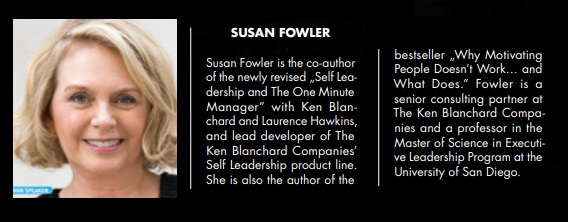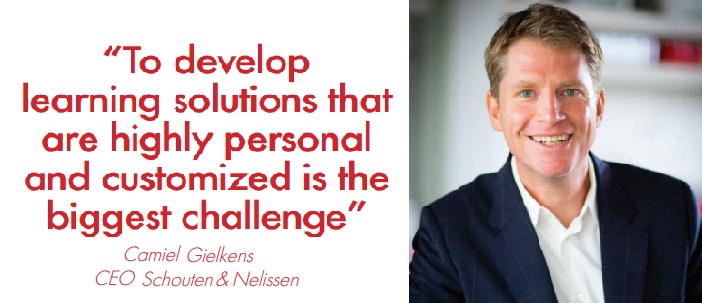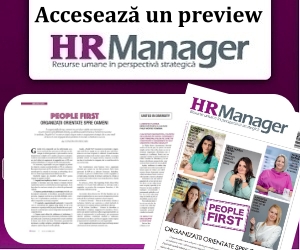
by Susan Fowler, senior consulting partner at The Ken Blanchard Companies and a professor in the Master of Science in Executive Leadership Program at the University of San Diego.
DO ANY OF THESE STATEMENTS RING TRUE FOR YOU?
1. Humility equals dishonesty.
2. Happy endings in life are rare.
3. There’s no such thing as an altruistic act.
4. It’s easier to succeed when you know the shortcuts.
5. Kindness leads to suffering losses.
6. Once comfortable, people will stop working hard.
7. Significant achievement requires not caring about the means for making the achievement.
8. Caring about social affairs only brings you trouble.
9. Old people are stubborn and inflexible; young people are impulsive and unreliable.
10. Being deeply in love means you’re blind.
If five or more of these statements resonate for you, consider yourself a potential cynic who may view the findings in this article personally relevant, especially if you are in a leadership role. If you suspect you’re not a cynic, this article may inspire you to continue being open minded. Either way, it’s important to consider the impact of cynicism on employees and leaders in the workplace.
WHAT CYNICAL EMPLOYEES DON’T DO
Cynicism is a general belief about the nature of human beings. Cynics believe that there’s no such thing as an unselfish act – people are always looking out for their own welfare, which implies you shouldn’t care about others’ needs as much as focus on looking out for your own. A cynic’s mistrust of others stems from believing that the world is basically a hostile place full of dishonest, conniving, uncaring, and self-interested people.
In their recently published research study of almost 800 employees at a global engineering company, Taylor Roberts and Drea Zigarmi found that cynical employees are less likely to develop employee work passion. These employees don’t have the intention to perform above expected standards, remain in the organization or endorse it to others, use organizational citizenship behaviors, or use their discretionary effort on the organization’s behalf.
In an interview with Zigarmi, he explains that a person’s beliefs about human nature underlie their values, which are the precursors to the behavior that ultimately leads positively to work passion or negatively to disengagement.
“Just as organizations carefully design interviews and selection tools to hire people who are honest, ethical and hardworking, they may also wish to screen for people who are not prone to cynicism,” Zigarmi suggests.
But, he is also quick to add that while screening for people’s beliefs, values, and tendency toward cynicism in the hiring process may be worth the effort, cynicism should never serve as the sole and primary criterion for hiring.
Rather than filtering out cynics, Zigarmi’s work suggests two more positive approaches:
1. Don’t prove the cynics right. Focus on justice and fairness in the workplace. Ensure that organizational metrics aren’t achieved at the expense of your employees’ well-being. Your leadership needs to consider of an employee’s needs, not consider them as an organizational asset.
2. Facilitate people’s exploration of their beliefs and values. Cynicism is not a natural human condition but a learned belief that could be the basis for a set of programmed, or unexplored, values. In the face of alternatives, Zigarmi believes people can develop values that serve them, the organization, and mankind in more positive ways.
WHAT CYNICAL LEADER S DON’T DO
Cynical leaders are not likely to be effective developers of people. Cynics by nature are negative with low expectations of others. Your employees tend to live down to those expectations. Some cynical leaders misdiagnose themselves as skeptics. Skepticism is a belief that you need to examine everything before coming to a conclusion.
Skeptics are open to learning and confirming their beliefs. Skepticism is inherently healthy. Cynics, on the other hand, are negative. Negativity is contagious. Employees of cynical leaders are more apt to experience negative affect and feelings of ill-being, which lead over time to disengagement.
CONSIDER THE ALTERNATIVES Over time, your cynicism can defeat you, beat you up and leave you exhausted. Imagine what it does to your employees. To deal with your own cynicism, consider these alternatives.
1. Become more observant of your emotions and those of your employees.
2. Get feedback from others about how your approach affects their approach to getting work done.
3. Come to grips with your general beliefs in the world. Where do they come from? What are your alternatives?
4. Practice seeing the world as half full and taking a promotable, open-minded mindset instead of defaulting to a preventative mindset where you are looking at the downside and calculating the worst that can happen.
5. Instead of expecting the worst and suspecting people’s motives, give someone the benefit of the doubt. They might surprise you and live up to your expectations.
6. Be a pessimist if you want. Pessimists consider themselves realists. But, cynicism goes beyond pessimism and implies cause: people’s selfish nature. A pessimist implies probability without attributing cause.
Perhaps wise words for us all: Don’t make the mistake of believing that the physical phenomenon of entropy also applies to human nature and that everything is devolving. Consider the belief that the human spirit ultimately triumphs and is ever evolving.





















